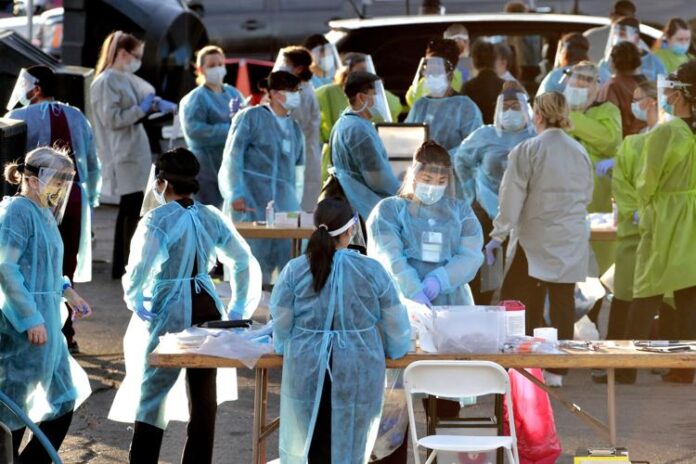
Arizona Republicans at the state and federal levels plan to reflect on the COVID-19 response at all levels of government with a new committee.
On Friday, the Arizona State Senate announced the Novel Coronavirus Southwestern Intergovernmental Committee, which will start in mid-May with state Sen. Janae Shamp leading as chairman and Sen. T.J. Shope as Vice Chairman.
The goal is to “evaluate protocols and overall public health guidance, funding incentives for health care facilities, injustices committed against families, businesses, workers and industries, potential preventative protections,” according to the statement. In addition, the group will develop a report by the end of next year to present to the state legislature.
“The pandemic was a heartbreaking period for so many people on so many different levels,” Shamp said in the statement. “I lost my job as a Perioperative Nurse because I refused to take the experimental vaccine that we now know has produced serious side effects in a number of otherwise healthy individuals. We’ve witnessed lives and livelihoods lost for no other reason than the mismanagement of COVID-19, and we are determined to hold those accountable for the injustices experienced.”
State Rep. Steve Montenegro, R-Avondale, as well as Congressmen Andy Biggs, Paul Gosar, and Eli Crane will be on the committee.
The first two meetings will be at the state capitol on May 25 and 26, but they plan to have more at later dates.
Although Arizona arguably had less stringent coronavirus pandemic measures compared to its more liberal counterparts at the state level, places like Pima County took harsher action well after 2020.
The committee also plans to look at “any possible legal remedies” for governmental actions that may have had a harmful impact throughout the pandemic.
While actions to stop the spread of the COVID-19 pandemic started in the United States in March 2020, the national emergency did not formally end until earlier this April, as President Joe Biden signed a bill originally put forth by House Republicans.
The Centers for Disease Control has attributed over 1.1 million deaths to COVID-19 nationwide. Over 33 thousand of those deaths have been in Arizona, according to Arizona Department of Health Services data as of April 26. The state had one of the highest rates of COVID-19 deaths in the country.
As measures such as school and office closures dominated the U.S., the impact ranging from learning loss from students to mental health impacts are still being assessed.
Republished with the permission of The Center Square.













